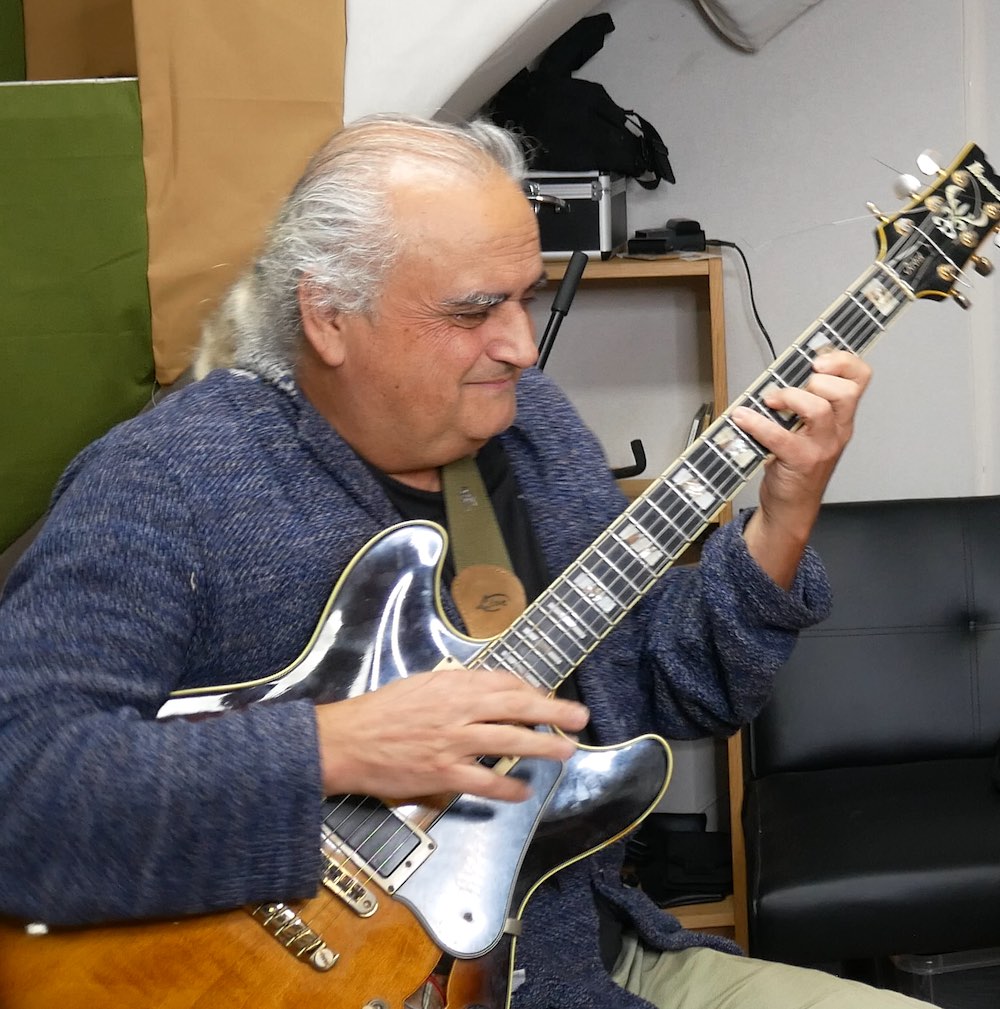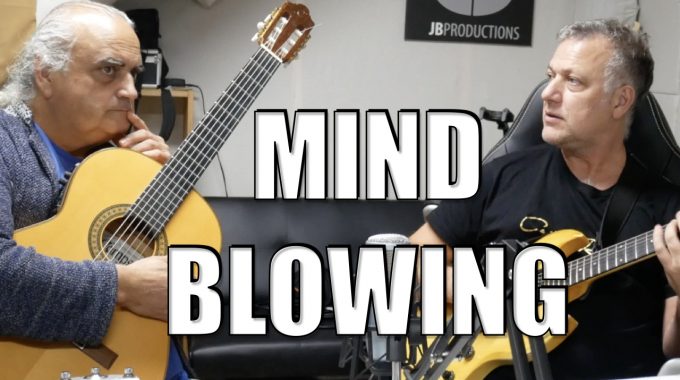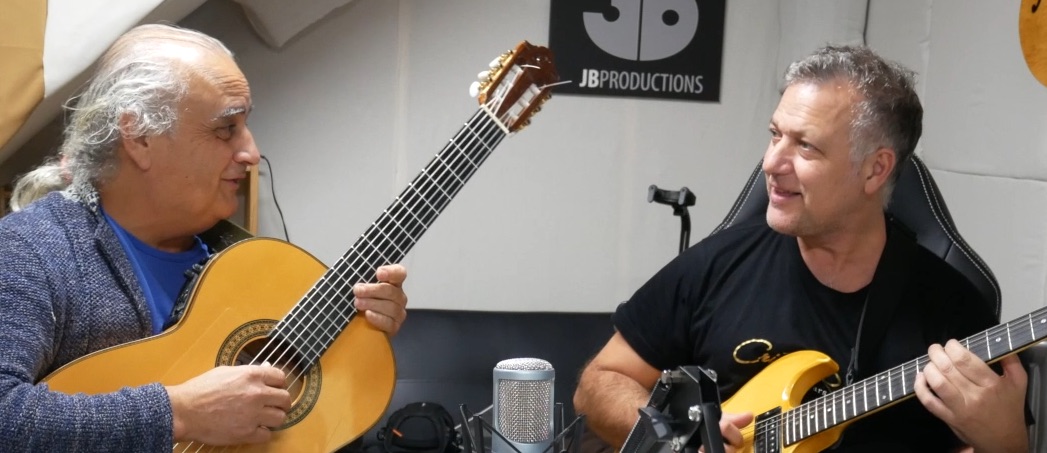Blues is a musical language. The overall blues sound comes from imposing a set of…

Melbourne Guitar Masterclasses
Don´t Imitate, Be Unique Be Creative
Thomas Lorenzo is a world renowned and award-winning guitarist, composer and music educator.
Table of Contents
What is a Masterclass?
A two hour seminar organised by the Creative Guitar School in where 10 specific topics are explained demonstrated and practiced. Students acquire the knowledge and learn how to turn that knowledge into musical skills in their own time.
How many Masterclasses are there ?
Six in total. Two for Jazz, two for Blues and two for Flamenco. They are held in November. Please read below for exact times and location.
Should I bring my guitar ?
Yes, students will be invited to demonstrate the new skills that are been presented.
We offer 2 levels of Masterclasses
- Masterclass 1 Is more suitable for beginners and Intermediate students.=
- Masterclass 2 Is targeted to advanced students
We offer 3 styles of Masterclasses
- Jazz
- Blues
- Flamenco
Please view the following videos for a brief introduction to each Masterclass
Where will they be held : Kathleen Syme Library
(Multi-purpose Room 2).
51 Faraday St, Carlton VIC.
Price: $65.00 per 2 hour session
Dates. ( 6:30-9:00 PM)
- Jazz Guitar Masterclass 1
- Jazz Guitar Masterclass 2
- Flamenco Guitar Masterclass 1
- Flamenco Guitar Masterclass 2
- Blues Guitar Masterclass 1
- Blues Guitar Masterclass 2
Why attend the Melbourne Guitar Masterclass: Blues ?
Thomas Lorenzo will be holding two very intimate Blues guitar masterclasses in November in Melbourne. The first class is targeted at guitarists who can play some Blues but feel they are stuck on the same sound and licks. They are not satisfied with their playing and are looking for a fresh approach to their soloing and accompaniment. The second class is targeted at more advanced Blues players who want to expand their improvisational skills in a more contemporary Jazz Blues setting. You may choose to attend only one of the classes, but for those who want the full benefit of the masterclass we recommend attending both as the second class expands upon the content of the first one.
What will you learn?
The Blues masterclass is designed to help you master what you need to know to improvise and play blues in your own unique way. You will learn to identify the Blues sound that you like and how to incorporate it in your own playing. All great blues musicians need to master a set of skills to allow to them improvise on the fly, tell a story and improvise in a continuous flow without running out of ideas. This includes playing in major and minor keys, as well as contemporary and traditional harmonic settings. Using very practical and engaging live demonstrations, Thomas Lorenzo will show you how you can start doing the same in your own playing.
After 30 years of playing and teaching Blues to students in both an academic and casual setting, Thomas has developed a system to learning Blues that allows aspiring players of all levels to achieve their goals in the shortest period of time. Don’t miss out on this fabulous opportunity to learn from a true master in a live and interactive environment. Thomas’ Blues masterclasses will inspire you and take your Blues playing to the next level.
Melbourne Guitar Masterclass: Blues overview
Blues Master Class 1
- Memorising the Blues scale
- Open and closed triads needed to play Blues and why
- Standard minor and major blues progressions with triads
- Standard major and minor blues progressions with 7th chords
- Motif soloing
- The Mississippi Blues sound
- Tertiary grooves versus binary grooves
- How to play chords using riffs and why
- Available upper structure triads for re-harmonisation techniques
- Available Blues tensions to add to your standard chord progressions
Blues Master Class 2
- Chord scale relationships in Jazzy Blues
- Standard Jazz Blues progressions
- Adding harmonic movement of opposite function to create diversity
- Advanced Blues improvisations techniques
- Planning a solo based upon an effective emotional contour
- Mastering the tools you need to create intensity
- How to make your Blues sound more contemporary
- Analysing what makes Blues masters like BB King and Steve Ray Vaughan sound so great
- Analysing what goes through the minds of Jazz masters like George Benson and Wes Montgomery when they solo over the blues
- How to incorporate the Blues sound into non-blues songs
Why attend the Melbourne Guitar Masterclass: Flamenco ?
The first class is targeted at guitarists who can play guitar but have limited improvisational skills. They have played a nylon string guitar and are interested in how to play Flamenco on their own. The second class is targeted at more advanced guitar players who want to expand their improvisational skills in a Flamenco setting. In both classes you will learn Flamenco styles, rhythms, harmonic structures and techniques.
What will you learn?
The Flamenco masterclass is designed to help you understand Flamenco, and bridge the gap between what you know and what you need to know to play Flamenco. You will be introduced to the authentic Flamenco styles (i.e. Buleria, Tangos, Solea and Alegria) and learn how incorporate these styles into your own playing. Thomas Lorenzo uses very practical and engaging live demonstrations to show you how you can start playing real Flamenco in no time with the skills you know.
Melbourne Guitar Masterclass: Flamenco overview
Flamenco Master Class 1
- What makes the flamenco sound , how to identify the styles
- Basic harmonic structures in Bulerias
- Basic harmonic structures in Tangos
- Basic harmonic structures in Alegrias
- Basic harmonic structures in Solea
- How chords are defined in Bulerias, Tangos, Alegrias and Solea
- Left and right hand techniques required
- The flamenco time signature in Tangos, Bulerias, Solea and Guajiras what you nee to know to understand it and flow in the groove
- How to develop a solid binary and tertiary rhythmic phrasing subdivision in flamenco styles
Flamenco Master Class 2
- Impact intensity versus gradual
- Learn to play a full Buleria, Tangos, Solea and Alegria as a solo instrument or as rhythm
- Chord scale relationships in Alegrias, Bulerias, Tangos
- How to compose in modal harmony
- How create you own falsetas or solo improvisation
- Advanced harmonic structures in Bulerias
- Advanced harmonic structures in Tangos
- Advanced harmonic structures in Solea
- Advanced harmonic structures in Alegrias
Why attend the Melbourne Guitar Masterclass: Jazz ?
The first class is targeted at players who are new to Jazz and want to learn how to play the genre. The second class is targeted at more advanced players who know their chords and scales and want to improvise in a more satisfying and creative manner. You may choose to attend only one of the classes, but for those who want the full benefit of the masterclass we recommend attending both as the second class expands upon the content of the first one.
What will you learn?
The Jazz masterclass is designed to help you master what you need to know to improvise and play jazz in your own unique way. Have you ever wondered what goes through the mind of the top world Jazz guitarists like Wes Montgomery, George Benson, Joe Pass when they play? All great Jazz musicians need to master a basic set of skills to allow to them improvise on the fly, tell a story and improvise in a continuous flow without running out of ideas. Using a very practical and engaging live demonstrations, Thomas Lorenzo will show you how you can start doing the same in your own playing.
Melbourne Guitar Masterclass: Jazz overview
Jazz Master Class 1
- How to memorise a chart and why
- What are the minimum chords and scales required to know all over the fingerboard and why
- How to practice scales and why
- How to play chords and define them in your unique manner
- How to identify what is your unique timbre , how to develop it and why
- How to be creative and why
- How to transcribe a solo and why
Jazz Master Class 2
- How to sound contemporary versus classical in your playing and why
- Lyrical soloing versus chord soloing and why
- Chordal soling versus non chordal soloing and why
- Pentatonic soloing over chord progressions and why
- How to add the blues touch to a jazz standard
- How to alter the harmony of the existing composition and why
- How to harmonise a melody with chords
- Stretching time and playing behind the time



